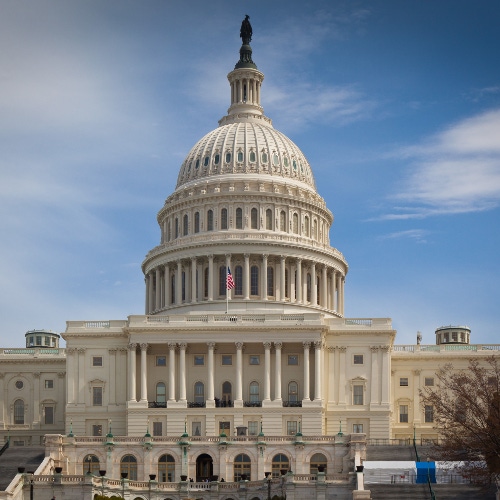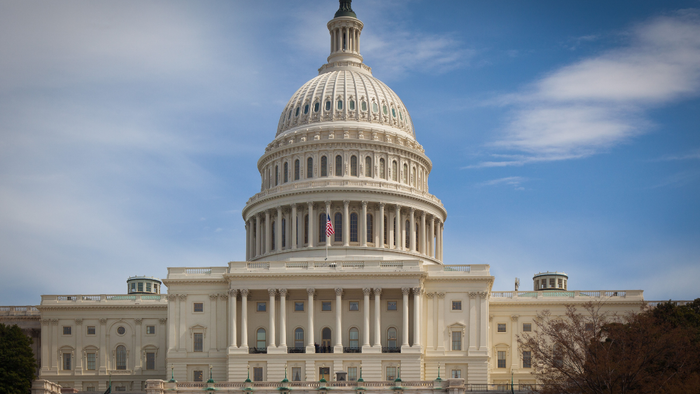Congress has introduced multiple bills to address the success of BEAD, including a recent bill that would stall the program until the FCC's map is fixed.

The US Congress has introduced several bills in recent months that would impact the rollout and implementation of the $42.5 billion Broadband Equity, Access and Deployment (BEAD) program.
The most recent example is a bill introduced on Friday (March 31) by Senators Jacky Rosen (D-NV) and John Thune (R-SD) entitled the Accurate Map for Broadband Investment Act. The bill would "ensure that broadband maps are accurate before funds are allocated under the Broadband Equity, Access, and Deployment Program based on those maps," according to a description of the bill on Senate.gov.
Senator Rosen has been one of several vocal critics in Congress of the FCC's broadband map.
"The FCC's failure to fix their deeply flawed broadband map and the Department of Commerce's refusal to wait to allocate broadband funding until the map is fixed puts hundreds of millions of dollars in funding for high-speed internet in Nevada at risk," said Sen. Rosen in a press release about the legislation. "My bipartisan bill would ensure the FCC can fix this map before money goes out the door."
Figure 1:  (Source: Inge Johnsson/Alamy Stock Photo)
(Source: Inge Johnsson/Alamy Stock Photo)
As of Monday morning, full text for the bill was not yet available. But according to The Wall Street Journal, the bill "would delay the final decision about state funding allocations by seven months." However, a spokesperson for Sen. Rosen told the WSJ that the bill would still allow for 20% of the funds "to flow to states immediately."
Reached by Light Reading, both the NTIA and FCC declined to comment on this matter. But, in response to widespread concerns about the map's accuracy, FCC Chairwoman Jessica Rosenworcel has put out multiple statements reassuring Congress and the public that the map is being improved, including an update in late March that the map was "getting better all the time."
According to Rosenworcel, the FCC and its partner CostQuest have improved the broadband map both by processing millions of location challenges, and through CostQuest's acquisition of better location data. Through that work – and in collaboration with the NTIA and local governments – she said, "we will release a National Broadband Map this Spring that more closely reflects the state of connectivity on the ground."
Supply chain, tax bills reintroduced
With Congress out of session for the next two weeks, it may be a minute before we see more movement on the mapping bill. Given the short timeline, it's unclear if that bill will make it through the House and Senate before NTIA is set to allocate BEAD funds on June 30.
But mapping isn't the only issue on Congress' mind when it comes to BEAD.
A couple of other BEAD bills introduced this year are holdovers from last session. One of those, the Network Equipment Transparency (NET) Act – introduced by Senators Jon Tester (D-MT), John Hickenlooper (D-CO), Shelley Moore Capito (R-WV) and Jerry Moran (R-KS) – would put the FCC in charge of "identifying and addressing any supply chain issues that might delay broadband buildouts," according to a press release about the bipartisan legislation. The bill envisions the FCC reporting this to Congress through its Communications Marketplace Report.
And in February, Senators Mark Warner (D-VA) and Jerry Moran (R-KS) reintroduced the Broadband Grant Tax Treatment Act to exempt broadband grants from the Infrastructure Investment and Jobs Act, American Rescue Plan and Tribal Broadband Connectivity Fund from being treated as taxable income.
That bill is a top priority for broadband industry groups like NTCA–The Rural Broadband Association and USTelecom, which have warned that taxing broadband grants will require providers to return a considerable chunk of funding to the federal government, resulting in fewer Americans being connected and potentially deterring providers from participating.
Notably, the BEAD-related bills have been introduced by several senators who voted for the Infrastructure Investment and Jobs Act (IIJA), which created the BEAD program, and are eager to see those funds invested effectively.
In a March press release about the NET Act, Sen. John Tester (D-MT) noted that he "worked with folks on both sides of the aisle to craft the bipartisan infrastructure law which will bring high-speed internet to every corner of Montana.
"Now I'm leading the charge alongside my colleagues to increase transparency and address any supply chain issues head-on so that these projects get done on time," he said.
Related posts:
Rosenworcel: Version two of broadband map will address 'most, if not all' concerns
— Nicole Ferraro, editor, Light Reading, and host of "The Divide" on the Light Reading Podcast.
About the Author(s)
You May Also Like











